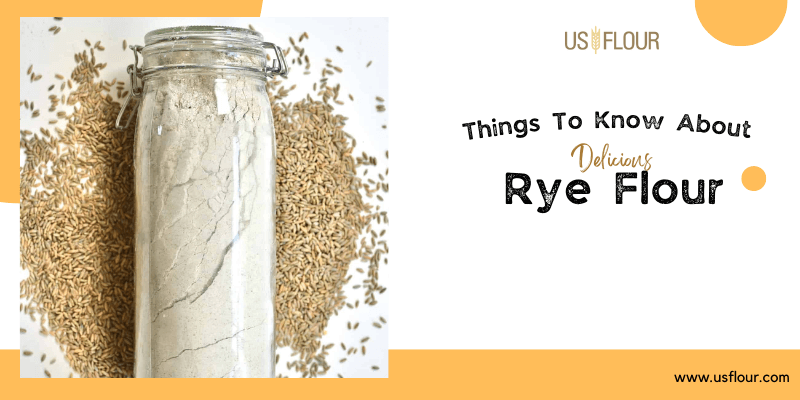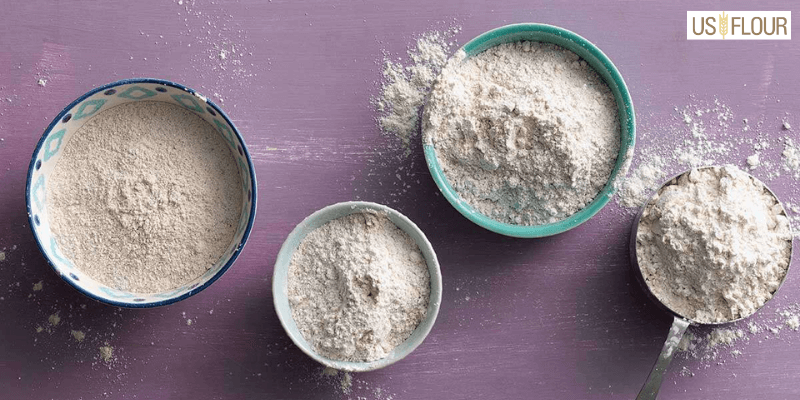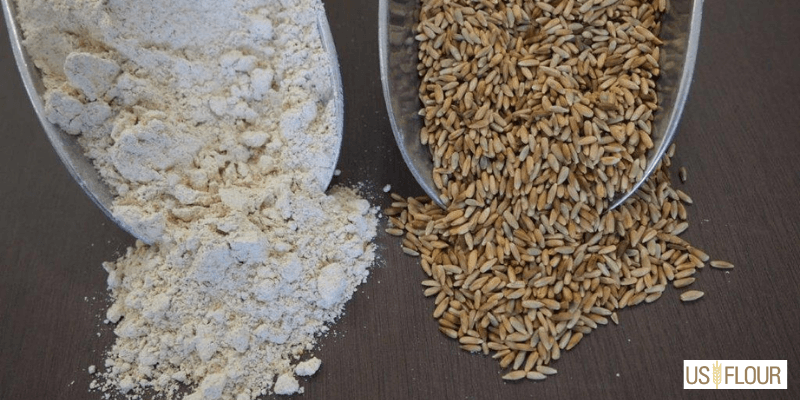Things To Know About Rye Flour

Is it true that rye has long been the second-best grain in bulk baked goods? For some, it falls into the lower category and descends into the category of mature taste. However, it is not universal. Countries like Russia, Scandinavia, and Poland have long accepted rye as a very thick brown bread. Learn more about this nutrient-dense winter cereal with these fun facts.
How do you know rye? It is a refined powder of berries or whole rye grains. It is used to make rye bread and sourdough, which gives it a unique taste. Except for the increased nutritional intake, which is equivalent to bread baked with wheat flour.
Rye contains countless essential vitamins and minerals, such as potassium and manganese. In addition, rye has less gluten than wheat, making bread made with rye flour ideal for those looking to consume less gluten. However, although rye flour contains less gluten than wheat flour, it still contains gluten and is not suitable for people with celiac disease or gluten sensitivity.
Different types of rye flour are made from different parts of the rye grain.
for example:
Light rye flour: This type of rye flour comes from ground endosperm – starch grains from rye grains.
Dark Rye flour: This flour is made from ground whole rye.
Black rye flour is sometimes made with white rye flour colored with cocoa powder, instant coffee, or molasses.
What are the benefits of rye flour?

1. Improves Heart Health
Eating rye bread may improve heart health, as research has linked rye bread consumption to lower risk factors for heart disease. For example, an 8-week study of 0 people compared the effect of eating 20 percent of daily calories from rye or wheat bread on cholesterol levels. Research has found that rye bread is more effective than wheat bread at lowering cholesterol levels in men, reducing total cholesterol and low-density lipoprotein (LDL) cholesterol by up to 1 % and 12 %, respectively. This result may be due to the high content of soluble fiber in rye bread, a type of indigestible fiber that forms a gel-like substance in the digestive tract, helping to remove rich elements from the blood and stomach. Research shows that eating soluble fiber regularly can lower total and LDL cholesterol by 5-10% in just weeks.
2. Improve blood sugar control
Blood sugar control is important for everyone, especially for those with type 2 diabetes who do not produce enough insulin, a hormone that regulates blood sugar.
First, rye bread is rich in soluble fiber, which helps slow down the digestion and absorption of carbohydrates and sugars through the digestive system, causing a gradual rise in blood sugar. Second, rye bread contains phenolic compounds, such as ferulic acid and caffeic acid, which slow the release of sugar and insulin into the bloodstream, which helps control blood sugar. Additionally, rye foods can increase levels of the satiety hormone, making people feel fuller for longer.
3. Aids Digestive Health

Rye bread can help improve digestive health in several ways. First, it is a good source of fiber that can help maintain regular bowel movements. Soluble fiber absorbs water and helps stools stay large and soft, making it easier to pass.
Studies prove that the fiber in rye bread can increase blood levels of short-chain fatty acids such as butyrate. These short-chain fatty acids have been linked to a variety of benefits, including weight loss, lowering blood sugar, and preventing colon cancer.
4. Helps you feel fuller for longer
Several studies have shown, as mentioned above, that rye bread provides excellent satiety. This is because rye bread or foods made with rye are high in soluble fiber, which helps you feel fuller for longer.
Summary:
Good research has found that consuming rye, similar to wheat, can improve blood sugar regulation. Rye bread is rich in magnesium, which helps regulate blood pressure and improve heart health. The high amount of soluble fiber reduces saturated fat. You can contact US Flour for getting rye flour in bulk. Visit the website today!
 Power to The Bakers.
Power to The Bakers.